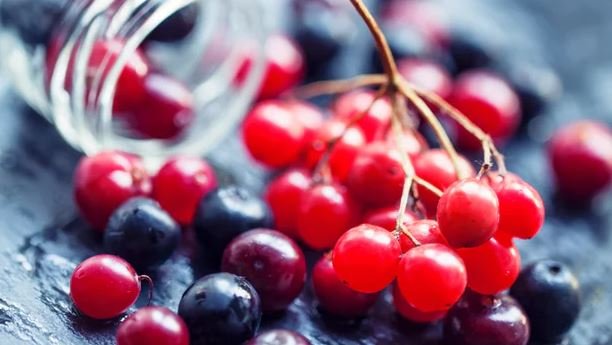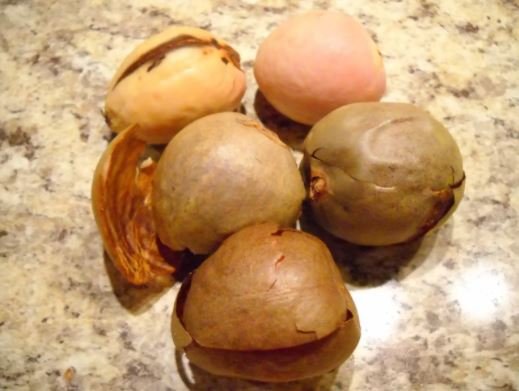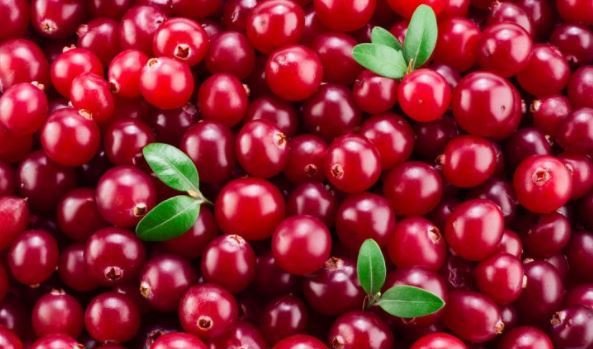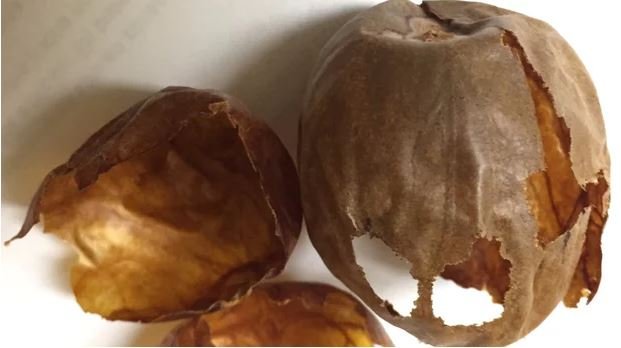Cranberry and Avocado Seed Husks Are Medically More Potent Than Previously Thought
Cranberry
As fruits, cranberries might not be the most popular. But the succulent fleshy shrub with a sharp acidic flavour packs a whole lot of health benefits.
Asides being effective in dealing with urinary tract infections, they have been found in recent years to be of benefit to our immune system, gut, heart and brain.

However, more recent research on their health properties has revealed that cranberries are capable of stopping the spread of bacterial infections through disruption of the communication networks of the pathogens.
The discovery indicates that cranberries might have an upper hand in dealing with bacteria, as compared to our traditional antibiotics. Present day antibiotics fight infections by killing bacteria; this has made most strains of bacteria to develop resistance against antibiotic drugs, which is a big health challenge in our current field of medicine; as it is becoming challenging finding effective treatments against them.
Stats from the Centers for Disease Control and Prevention (CDC) in the U.S, related to a type of stubborn bacteria strain, “Pseudomonas aeruginosa”, shows that where there are 51,000 health related infections of the “Pseudomonas aeruginosa” yearly, over 6000 of those infections, are ‘multi-drug resistant’. This has led to the death of about 400 patients on a yearly basis.
The dire statistics has necessitated a call for more efficient alternative treatments, capable of inhibiting bacteria without causing them to develop the selective pressure and drug-resistance.
An alternative method involves inhibiting the cells of the bacteria from communicating with one another, which would stall their growth and enable the body’s immune response to remain in charge; a procedure known as Quorum Sensing (QS).
Scientists in Canada’s McGill University and INRS-Institut Armand-Frappier are working on proanthocyanidins (cerPAC); a compound extract from cranberry to form a solution, which would be used as QS inhibitors to manage bacterial infections. The compound in earlier research has been used to prevent bacteria from sticking to urinary tract walls, and disrupt the mobility of certain pathogens.
A new test of the cranberry extract on fruit flies infected with a ‘Pseudomonas aeruginosa’ strain was promising, because the flies survive the bacterial infection. It was also noticed that the cerPAC compound successfully disrupted two QS molecules, 3-oxo-C12-HSL and C4-HSL, in the P. aeruginosa bacterial cells.
The author of the study, Dr. Eric Déziel of INRS-Institut Armand-Frappie, stated that;
"Cranberry PACs interrupt the ability for bacteria to communicate with each other, spread and become virulent. The cranberry extract successfully interferes with the chain of events associated with the spread and severity of chronic bacterial infections."
The highpoint of the ability of the cranberry extract was that it inhibited the P. aeruginosa bacteria strain without killing the cells which suggests the possibility of avoiding the cycle of antibiotic resistance.
Results have so far shown that the cerPAC could potentially aid the treatment of chronic infections caused by P. aeruginosa strain and other pathogens. However, further tests would be needed to ensure that the extract has no toxic response in humans based on the concentrations that would be used.
Avocado Seed Husk
A study of avocado seed husks by scientists from the University of Texas Rio Grande Valley, has shown that the flaky substances are endowed with vital chemical compounds, some of which can aid the treatment of heart disease, cancer and other health conditions.

In a bid to ascertain the presence of any usefulness of avocado seed husk, scientists ground 300 dried avocado husks into powder and converted it into seed husk oil and wax
With the ad of mass spectrometry analysis (gas chromatography) the scientists found the oil to contain 116 compounds and the wax 16 compounds which weren’t found in the avocado seeds.
Some of the compounds discovered were;
- dodecanoic acid - can reduce the risk of atherosclerosis;
- behenyl alcohol - used in anti-viral medications; and
- heptacosane - might possibly inhibit tumor growth.
Other compounds found could improve flexibility of items like shower curtains, medical devices and other used as food additives and in cosmetics.
Dr. Debasish Bandyopadhyay who led the study said;
"It could very well be that avocado seed husks, which most people consider as the waste of wastes, are actually the gem of gems because the medicinal compounds within them could eventually be used to treat cancer, heart disease and other conditions. Our results also suggest that the seed husks are a potential source of chemicals used in plastics and other industrial products."
The research team would investigate further to ascertain how some of these natural compounds would be used in medications with little or no side-effects.
Reference:
- https://www.eurekalert.org/pub_releases/2016-10/pc-cdh102116.php
- http://www.nature.com/articles/srep30169
- http://www.healthyfoodstyle.com/cranberry-extract-now-proven-to-scramble-bacteria-communication-cuts-virulence/
- https://www.acs.org/content/acs/en/pressroom/newsreleases/2017/august/avocado-seed-husks-could-be-a-gold-mine-of-medicinal-and-industrial-compounds.html
- https://www.cbsnews.com/news/avocado-seed-husks-possible-health-benefits/
Thank you for your time and for reading my post.
If you found this post interesting, then kindly UPVOTE, RESTEEM and FOLLOW @rickie, for more quality posts.
You Can Check Out My Other Posts Below:
- Apart From Humans, Pollution Affects Plants Extremely Too
- Treatment Of Ponds And Water Using Aquatic Plants
- Electronic Cigarette: History, How it Works, and Risks
- A Smart-Phone Compatible System Detects Bacteria In Food
- With New Technology, Cancer Can Be Spotted Several Months Before It Occurs
- Synthetic Alcohol That Doesn't Give Hangover Will Replace Present-Day Alcohol In A Few Years



This will help our health! Thank you. Can I resteem your post ?
many fruits that can be used as herbal medicine but why now many drugs contain chemicals when it is not safe for the human body.
Try a IPA with it!